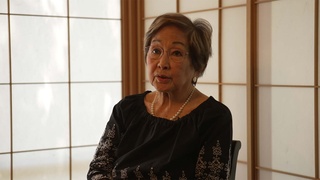Entrevistas
What I wanted to pass down to my children (Japanese)
(Japanese) Since they were young, I counted on my wife to raise our children. There would be times that I couldn’t help but be away [from home] due to work. [Working] from early morning to late at night—it was difficult to find a chance to spend some quality time with my kids and talk with them. I did try my best to take vacations to go on trips together as a family, but things like lecturing life lessons to my kids… I don’t recall telling my kids anything of the sort. There were discussions between my wife and me about it—about how we should be raising the kids and such. But I don’t think we did very often. In my heart, I feel that I wanted to tell my kids to have awareness that they are Japanese. It’s not something like “you have to do this or that because you’re Japanese,” but more like having a Japanese consciousness, that sort of thing. I think I was able to pass that on to my children, at least to some degree.
Fecha: June 17, 2008
Zona: California, US
Entrevista: Yoko Nishimura
País: Watase Media Arts Center, Japanese American National Museum


